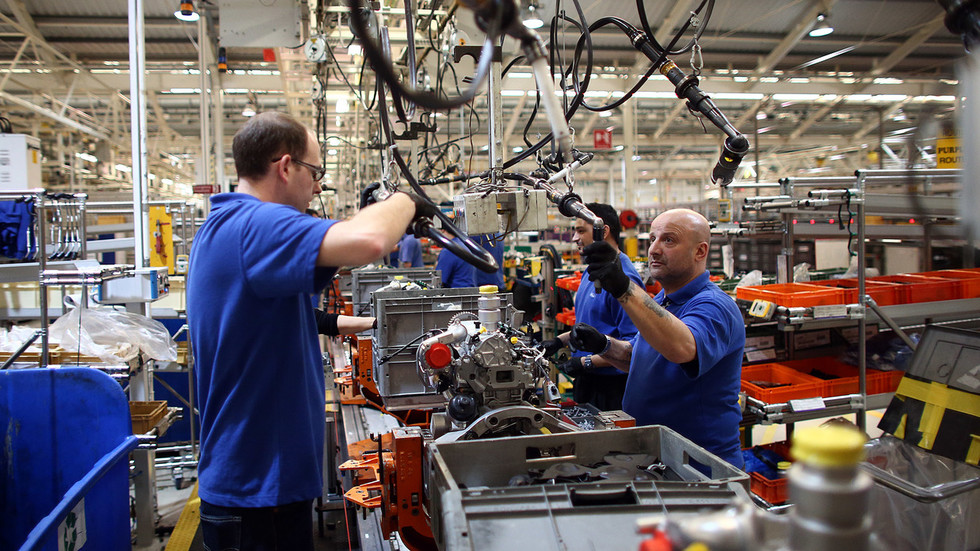Whenever the German Chancellor makes an appearance in a flood-affected area wearing rubber boots, the situation is serious. And when he has Bavaria's head of government and the Federal Minister of the Interior in tow, the situation must be particularly tense.
Chancellor Olaf Scholz, Bavarian Premier Markus Söder, and Interior Minister Nancy Faeser faced journalists in front of the fire station in Reichertshofen in Upper Bavaria.
"The forces of nature are big, they are strong and they can cause great destruction," Scholz said. "This goes for floods in particular, this is the fourth time this year that I have gone to a specific area of operation. We will do everything we can, including using the possibilities offered by the federal government, to ensure that help can be provided quickly."
Amid Germany floods, chancellor urges climate change action
Firefighters and emergency workers at their limit
The floods have badly affected the town of Reichertshofen. It is situated on the river Paar, a tributary of the Danube. But the normally tranquil tributary became a raging river during heavy rainfall and burst several dams. Many communities were evacuated, as cellars and ground floors of houses flooded and electricity failed.
"The situation is, and remains, serious," said Premier Markus Söder at the scene. "The water is receding in some places, and clean-up work is starting. But we are still seeing flood breakthroughs. Dams are still being waterlogged, there are new floods, and many evacuations. At the moment, more than 3,000 people are being evacuated. And that number is likely to grow."
Söder praised the volunteers who have done service since flooding began. There are currently 20,000 on the job, and more than 50,000 have been involved over the past few days.
Christian Nitschke is one of them — he is the district's highest-ranking fireman. He says he is proud of his team that managed to bring thousands of people to safety.
But the death of a firefighter, whose dinghy capsized during a rescue operation, weighs heavily on him. He told DW: "This is this operation's nightmare — losing a colleague is the worst thing that can happen. We are very shocked, dismayed and shaken. But we will fight to the end. Even in the areas where we have lost to the water."
Southern Germany: Firefighter loses life in record flooding
District Administrator Albert Gürtner, who took office during the challenging COVID-19 pandemic, highlighted the important role of the volunteer network.
"Yesterday we feared that an entire town of 10,000 residents might get flooded. Thank God it didn't happen — not least because of the great efforts of rescue workers. We have to keep supporting the voluntary structures we have. Because there aren't enough full-time staff," he told DW
He is concerned that the Danube could swell again in the next couple of days. The entire town is anxiously watching the water levels while focusing on more immediate matters such as flooded basements and entranceways and power outages.
Support for victims like during COVID-19?
Martin Lorenz, who owns a small gym in Reichertshofen, says his existence is once again on the brink of ruin.
Lorenz's gym was already hit hard by the COVID-19 pandemic four years ago. Now it is flooded with ankle-deep water.
"After the coronavirus, business picked up again for about one year. And now this. Everything that runs on electricity, the fitness equipment, and the floors — are all ruined," he told DW.
Germany floods: Amid disaster, cleanup efforts begin
Lorenz believes it was important for the German Chancellor to see the situation in Reichertshofen firsthand. But he also says that Scholz must live up to his promise of quick relief for the flood victims. Lorenz's very own existence depends on it.
"Politicians should gain a realistic overview — but not make empty promises. During the coronavirus pandemic, things were overly complicated. It shouldn't be like that. Back then, you were afraid of doing 1,000 things wrong, and that you'd have to pay back 100 things."
This article was originally written in German.
While you're here: Every Tuesday, DW editors round up what is happening in German politics and society. You can sign up here for the weekly email newsletter Berlin Briefing.

 5 months ago
19
5 months ago
19








